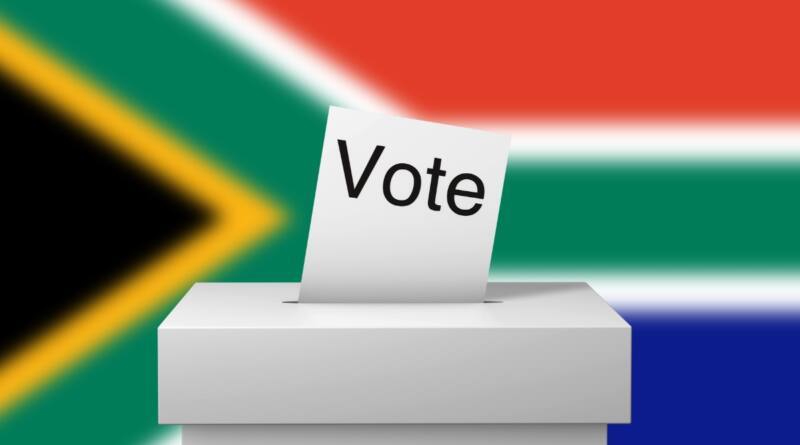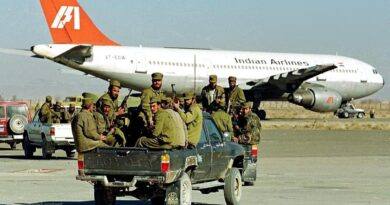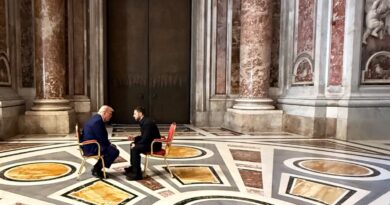The Elections In South Africa Simplified: Know It All
WFY BUREAU AFRICA: South African voters have chosen to reject the party that played a pivotal role in ending the era of apartheid.
This decision represents a significant shift in the country’s political landscape. The outcome of the election reflects a growing dissatisfaction among voters with the party that once symbolised hope and liberation. It is clear that the electorate is seeking change and a new direction for the nation. The rejection of the party that freed them from apartheid is a powerful statement by the South African voters, signalling their desire for a fresh start and a departure from the past.
In a historic turn of events, the African National Congress has experienced a significant decline in its national vote share, falling below the 50 percent mark for the first time in three decades. This outcome has undoubtedly set the nation on a new and uncertain path.
In a significant turn of events, the African National Congress has seen its political dominance in South Africa come to an end. The latest election results, with nearly all votes counted, reveal that the party has secured only around 40 percent of the vote. This marks the first time in three decades, since overthrowing Africa’s last white-led government, that the ANC has failed to secure an absolute majority.
Despite South Africans grappling with some of the highest unemployment rates globally, along with electricity and water shortages and widespread crime, the governing party managed to outperform its rivals. However, its share of the vote fell significantly from the nearly 58 percent it secured in the previous election in 2019.
Africa’s oldest liberation movement has experienced a significant decline, leading to uncertainty and uncharted territory for one of the continent’s most stable countries and its largest economy.
The party, known for its association with Nelson Mandela, will now face the challenge of forming a government within a two-week timeframe. This task involves collaborating with rival parties that have criticised its integrity and pledged to never join forces with it.
“I am genuinely surprised,” expressed Maropene Ramokgopa, a prominent figure within the African National Congress (A.N.C.). “This experience has brought to our attention that there is something we have overlooked.”
Cyril Ramaphosa, the president of South Africa and leader of the A.N.C., is currently facing a significant challenge to his goal of securing a second term in office. He will need to tap into his renowned negotiating skills, which played a crucial role in ending apartheid, and unite his deeply divided party, which is expected to have differing opinions on potential alliances.
We anticipate that critics will hold Mr. Ramaphosa responsible for this significant decline and may attempt to replace him, potentially with his deputy, Paul Mashatile. In the past, the party experienced its largest decline in votes between two elections in 2019, with a decrease of 4.7 percent.
“I am surprised by the deterioration of the situation under Ramaphosa’s leadership,” commented Khulu Mbatha, a long-standing member of the A.N.C. who has been vocal about the party’s lack of decisive action against corruption.
Jacob Zuma, the archenemy and predecessor of President Cyril Ramaphosa, played a significant role in the collapse of the African National Congress (A.N.C.).
In a significant development, Mr. Zuma played a key role in the recent establishment of uMkhonto weSizwe, also known as M.K., a political party named after the A.N.C.’s armed wing that fought against apartheid. A remarkable turn of events saw the party secure nearly 15 percent of the vote, a feat rarely achieved by a new political party in a national election. It diverted significant votes away from the A.N.C. and other political parties.
In a surprising turn of events, Mr. Zuma, a controversial figure known for his involvement in various scandals, cast doubt on the legitimacy of the election results. He asserted that his party secured a two-thirds majority despite the overwhelming outcome, claiming manipulation of the results. According to party officials, they have submitted evidence to the electoral commission. However, Mr. Zuma, who continues to lead the party despite his ineligibility for Parliament, chose not to disclose that evidence to the public. He cautioned the commission, urging them to refrain from certifying the election results on Sunday as originally planned.
“No one is allowed to announce tomorrow,” he stated during a press conference held at the Johannesburg headquarters, where election officials were disclosing the results. If such an event were to occur, it would undoubtedly elicit a strong reaction from individuals. It is critical that the person in charge is attentive to our message. It is advisable to avoid unnecessary conflicts and confrontations.
Jacob Zuma, the former president of South Africa and leader of the uMkhonto weSizwe party, made an appearance at the Electoral Commission centre in Johannesburg. During his visit, he made allegations that the election results were rigged without providing any public evidence to support his claims.
Representatives from approximately twenty other small parties joined Mr. Zuma, alleging irregularities in the election. Together, they called for the postponement of the official results announcement.
Mr. Zuma’s recent actions have raised concerns about the potential political challenges he may pose to the A.N.C.
In the absence of an absolute majority, the A.N.C. is no longer able to personally select the country’s president, as the 400-member National Assembly is responsible for the election. In the national election, a total of 52 parties participated, each vying for seats in the Assembly. The proportion of votes each party receives determines the allocation of seats.
Given the significant margin needed to achieve a 50 percent majority, it is expected that the A.N.C. will attempt to form alliances with larger parties, despite the contentious exchanges they had during the campaign.
This situation has completely disrupted South Africa’s political landscape, putting the A.N.C. at a critical turning point. The party’s potential coalition partners span a wide range of ideologies, and depending on whom it decides to partner with, it risks alienating different segments of its base.
One of the key questions that arises is whether the A.N.C. will welcome or distance itself from Mr. Zuma, who stepped down as president in 2018 amidst allegations of corruption.
The leaders of the A.N.C. may be hesitant to fulfil one of Mr. Zuma’s key requests for a coalition agreement. Duduzile Zuma, daughter of the former president, expressed her father’s party’s refusal to form a coalition with “the A.N.C. of Ramaphosa.” Meanwhile, the Democratic Alliance, which garnered almost 22 percent of the vote, remains a potential ally for the A.N.C. Certain A.N.C. members have accused the Democratic Alliance of advocating policies that could potentially return the country to the apartheid era. Many see the partnership between the two parties as a seamless match, given the Democratic Alliance’s market-based perspective on the economy, which closely aligns with Mr. Ramaphosa’s.




